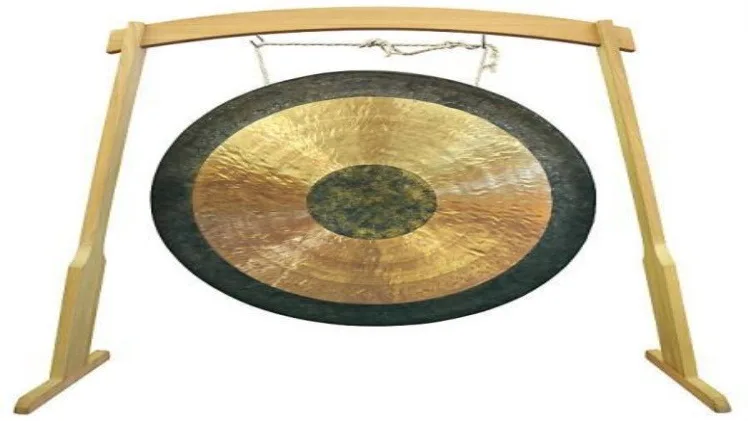Understanding Gong Materials
Gongs can be made from various materials such as bronze, brass, or stainless steel. It’s important to understand the specific material your gong is made of as it will determine the type of care it requires. Research the manufacturer’s specifications or consult with an expert to identify the material composition of your gong.
Cleaning and Polishing Your Gong
Regular cleaning is essential to maintain the visual appeal and tonal quality of your gong. Begin by wiping the gong’s surface with a soft, lint-free cloth to remove any dust or dirt. For more stubborn stains, use a mild soap or specialized gong cleaning solution. Avoid abrasive cleaners or scrubbing tools that can damage the gong’s surface. Once cleaned, polish the gong gently using a non-abrasive polish to restore its luster.
Handling and Storing Your Gong
When handling a gong, it’s crucial to do so with care to prevent accidental damage. Always hold the gong from its edges, avoiding contact with the center. If your gong comes with a stand, make sure it is stable and securely holds the gong. When storing your gong, find a safe and dry place where it won’t be subjected to extreme temperatures or humidity. Consider using padded covers or bags to protect it from scratches and dust.
Protecting Your Gong from Damage
To keep your gong in optimal condition, it’s important to protect it from potential damage. Avoid exposing your gong to direct sunlight for extended periods as it can cause discoloration and affect the sound quality. Additionally, keep your gong away from crowded areas to minimize the risk of accidental collisions or knocks. Be mindful of nearby objects that could scratch or dent the gong and maintain a clear space around it.
Maintaining Gong‘s Tonal Quality
The tonal quality of a gong can deteriorate over time if not properly maintained. To ensure your gong continues to produce resonant and harmonious tones, periodically strike it with a soft mallet or gong beater. Listen attentively for any changes in tonal quality, such as diminished resonance or unusual vibrations. If you notice any issues, consult with a professional gong tuner who can help restore the gong’s optimal tonal qualities.
Repairing Damaged Gongs
Despite your best efforts, accidents can happen, and gongs may get damaged. In case of dents, consult with an experienced gong repair specialist who can carefully reshape and restore the gong’s original form. For more serious damages, such as cracks or structural issues, it’s advisable to reach out to the manufacturer or an authorized gong repair service. Avoid attempting to repair significant damages on your own, as it could further compromise the gong’s integrity.
Common FAQs about Gong Maintenance
FAQ 1: How often should I clean my gong? It’s recommended to clean your gong every few months or when you notice visible dirt or stains on its surface.
FAQ 2: Can I use regular household cleaners on my gong? No, it’s best to use specialized gong cleaning solutions or mild soaps specifically formulated for musical instruments.
FAQ 3: How can I prevent rust on my gong? To prevent rust, ensure your gong is stored in a dry environment and avoid exposing it to moisture or humidity.
FAQ 4: Can I hang my gong outdoors? While some gongs are designed for outdoor use, it’s generally advisable to protect your gong from the elements to prevent damage from weather conditions.
FAQ 5: What should I do if my gong gets dented? Consult with a professional gong repair specialist who can assess the damage and provide appropriate repair solutions.
Conclusion
Proper maintenance and care are essential to keep your gong in optimal condition and preserve its tonal quality. Regular cleaning, careful handling, and adequate protection from damage are key factors in ensuring the longevity of your instrument. By following the guidelines outlined in this article, you can enjoy the rich sounds and visual beauty of your gong for years to come.



